Best movies like Partition: The Day India Burned
A unique, carefully handpicked, selection of the best movies like Partition: The Day India Burned Starring Chiwetel Ejiofor, Roedad Khan, Som Anand, Nayantara Sahgal, and more. If you liked Partition: The Day India Burned then you may also like: Viceroy's House, Privilege, Come Together, Grass: A Nation's Battle for Life, Why They Sank Titanic and many more popular movies featured on this list. You can further filter the list even more or get a random selection from the list of similar movies, to make your selection even easier.
Documentary about the effects of Britain's withdrawal from India in 1947 which triggered one of the biggest migrations in history. 15 million were displaced and more than a million lost their lives. The story is told through the testimony of people who lived together for centuries, but were forced out of their homes as one of the largest and most ethnically diverse nations in the world was divided. Dramatised reconstructions evoke some of the mistrust, violence and upheaval that ensued
You may filter the list of movies on this page for a more refined, personalized selection of movies.
Still not sure what to watch click the recommend buttun below to get a movie recommendation selected from all the movies on this list
Privilege
Britain's biggest pop singer, Steven Shorter (Paul Jones), receives unwavering adulation and possesses total control over his rabid fans, which includes nearly the entire population. Yet Shorter is not an autonomous performer -- he is little more than a puppet for the government, promoting whatever agenda they see fit. When a beautiful artist, Vanessa Ritchie (Jean Shrimpton), is commissioned to paint his portrait, she pushes Shorter to question his obedience to his manipulative handlers.
Come Together
Based on a True Story, Come Together is about seven, ethnically diverse, college students who spend the night in a Hollywood Hills mansion, during the 1992 Los Angeles Riots. They escape from the fires, looting and violence in South Central, only to realize that the real drama is right under their own roof. Personalities clash and bodies merge as this all-night party reaches its climax. Strangers become friends, and enemies become lovers, when each one confronts their fears, desires, addictions and dreams.
Grass: A Nation's Battle for Life
A silent documentary which follows a branch of the Bakhtiari tribe of Persia as they and their herds make their epic seasonal journey to better pastures.
Why They Sank Titanic
Everyone knows the story of the Titanic, how the largest moving object ever fashioned by the hand of man hit an iceberg on its maiden voyage and sank in the middle of the North Atlantic, and 1,500 lives were lost. The tragedy has been well documented in books and on films. No matter how often the story is told, it never fails to capture the imagination. It is a story that has left many questions unanswered, and the programme provides an intriguing hypothesis that the ship that plummeted two miles to the bottom of the sea was not the Titanic but its sister ship the Olympic. This film is based upon the research of Andrew Newton and includes the evidence of the British and American inquiries, the eye witness reports of survivors, newspapers of the day, photographs, video, film and radio broadcasts. The views and opinions presented in this film are based on actual evidence and legitimate inference. It may be the ultimate conspiracy – or could it be the truth?
Toronto Stories
Various lives intersect over the course of 48 hours in Canada's largest and most culturally diverse city.
The Work and the Glory II: American Zion
"The Work and The Glory: American Zion" sets the story of the fictional Steed family against the historically factual backdrop of the Mormon people's move into the West. Divided by their diverse reactions to a nascent ideology, the Steeds struggle to hold together as the strength of their convictions and their filial bonds are tested. The stirring narrative of the faith that led a persecuted people to Missouri and beyond is one of the most poignant untold tales of American history. It is the account of a valiant struggle to exercise the rights promised by a fledgling nation. "The Work and the Glory: American Zion" unearths the story of the passion behind the movement which eventually launched the largest American migration and the colonization of the West: the vision of a promised land in America.
The Long Way Home
The story of the post World War II Jewish refugee situation from liberation to the establishment of the modern state of Israel.
The Karma Killings
"The Karma Killings," is a modern-day crime thriller mixed in with Indian mythology and class warfare. The documentary delves into India's most infamous serial killings and its impact on a nation. Told through the people directly involved, the film unravels the complexities of the case and goes beyond the sensational headlines to present a suspenseful and scary mystery. And has a huge twist - one of the killers maybe innocent?
The Tulsa Lynching of 1921: A Hidden Story
Documents the race riot of 1921 and the destruction of the African-American community of Greenwood in Tulsa, Oklahoma. With testimony by eyewitnesses and background accounts by historians.
Lost at Sea: The Search for Longitude
It was one of humankind's most epic quests - a technical problem so complex that it challenged the best minds of its time, a problem so important that the nation that solved it would rule the economy of the world. The problem was navigation by sea—how to know where you were when you sailed beyond the sight of land - establishing your longitude. While the gentry of the 18th Century looked to the stars for the answer, an English clockmaker, John Harrison, toiled for decades to solve the problem. His elegant solution made him an unlikely hero and remains the basis for the most modern forms of navigation in the world today. This film will be both a celebration of Harrison's invention and an adventure story. An expedition on a period sailing vessel as it sails the open sea will demonstrate the life and death importance of finding your longitude at sea.
Freddie Mercury: The Final Act
The story of the extraordinary final chapter of Freddie Mercury’s life and how, after his death from AIDS, Queen staged one of the biggest concerts in history, the Freddie Mercury Tribute Concert at Wembley Stadium, to celebrate his life and challenge the prejudices around HIV/AIDS. For the first time, Freddie's story is told alongside the experiences of those who tested positive for HIV and lost loved ones during the same period. Medical practitioners, survivors, and human rights campaigners recount the intensity of living through the AIDS pandemic and the moral panic it brought about.
Nazis at Nuremberg: The Lost Testimony
Never-before-heard trial testimony reveals shocking new details about World War II and the inner workings of the Nazi war machine.
The Day Hitler Died
The story of Hitler’s final hours told by people who were there. This special features exclusive forgotten interviews, believed lost for 65 years, with members of Hitler’s inner circle who were trapped with him in his bunker as the Russians fought to take Berlin. These unique interviews from figures such as the leader of the Hitler Youth Artur Axmann and Hitler’s secretary Traudl Junge, have never before been seen outside Germany. Using rarely seen archive footage and dramatic reconstruction, this special tells the story of Adolf Hitler’s final days in his Berlin bunker.
1929: The Great Crash
A documentary exploring the causes of the 1929 Wall Street Crash.Over six terrifying, desperate days in October 1929, shares crashed by a third on the New York Stock Exchange. More than $25 billion in individual wealth was lost. Later, three thousand banks failed, taking people's savings with them. Surviving eyewitnesses describe the biggest financial catastrophe in history.
The Pendle Witch Child
The extraordinary story of the most disturbing witch trial in British history and the key role played in it by one nine-year-old girl. Jennet Device, a beggar-girl from Pendle in Lancashire, was the star witness in the trial in 1612 of her own mother, her brother, her sister and many of her neighbours and, thanks to her chilling testimony, they were all hanged.
Paris 1919: Un traité pour la paix
The last shots had been fired in the First World War — but peace had yet to be made. Inspired by Margaret MacMillan’s acclaimed work of popular history, Paris 1919 takes us inside the most ambitious peace talks in history, revisiting the event with a vivid sense of narrative. Evoking a pivotal moment when peace seemed possible, director Paul Cowan reflects upon the hard-learned lessons of history.
Stealing a Nation
This tells a story literally 'hidden from history'. In the 1960s and 70s, British governments, conspiring with American officials, tricked into leaving, then expelled the entire population of the Chagos islands in the Indian Ocean. The aim was to give the principal island of this Crown Colony, Diego Garcia, to the Americans who wanted it as a major military base. Indeed, from Diego Garcia US planes have since bombed Afghanistan and Iraq. The story is told by islanders who were dumped in the slums of Mauritius and in the words of the British officials who left a 'paper trail' of what the International Criminal Court now describes as 'a crime against humanity'
Mental: A History of the Madhouse
Documentary which tells the fascinating and poignant story of the closure of Britain's mental asylums. In the post-war period, 150,000 people were hidden away in 120 of these vast Victorian institutions all across the country. Today, most mental patients, or service users as they are now called, live out in the community and the asylums have all but disappeared. Through powerful testimonies from patients, nurses and doctors, the film explores this seismic revolution and what it tells us about society's changing attitudes to mental illness over the last sixty years.
Japan's War In Colour
Using never-before-seen footage, Japan's War In Colour tells a previously untold story. It recounts the history of the Second World War from a Japanese perspective, combining original colour film with letters and diaries written by Japanese people. It tells the story of a nation at war from the diverse perspectives of those who lived through it: the leaders and the ordinary people, the oppressors and the victims, the guilty and the innocent. Until recently, it was believed that no colour film of Japan existed prior to 1945. But specialist research has now unearthed a remarkable colour record from as early as the 1930s. For eight years the Japanese fought what they believed was a Holy War that became a fight to the death. Japan's War In Colour shows how militarism took hold of the Japanese people; describes why Japan felt compelled to attack the West; explains what drove the Japanese to resist the Allies for so long; and, finally, reveals how they dealt with the shame of defeat.
Strangeways: Britain's Toughest Prison Riot
Twenty-five years after the biggest riot in British penal history, this film brings together the ringleaders of the trouble with the prison guards they battled with over three weeks of anarchy that brought Strangeways to its knees. For the first time, these events are told through unparalleled access to the people at the heart of the riot - ex-inmates, prison officers and the governor himself - createing a compelling story of the struggle for power between the authorities and the hardcore prisoners who ultimately took their protest onto the prison roof. The stand-off that followed is documented until the final moments, when the siege was ended in a dramatic takedown in front of rolling news cameras.
England's Reformation: Three Books That Changed a Nation
To mark the 500th anniversary of the Reformation, Janina Ramirez tells the story of three books that defined this radical religious revolution in England.
Sickert vs Sargent
Sickert vs. Sargent brings to life two of the biggest characters in modern British art; Walter Sickert - the gruff, aggressive man-of-the-people; and John Singer Sargent - the urbane and charming dandy. The film focuses on some of the most beautiful and alarming paintings ever made in this country; pictures of aristocrats and prostitutes, coronations and killings, opera houses and music halls, and will evoke the long-lost atmosphere of Edwardian London. But above all it will show that from their two outposts in Chelsea and Camden, Sickert and Sargent were waging a war whose legacy still haunts us today.
Britain's Greatest Invention
BBC Two takes us inside the world's biggest invention time capsule - the Science Museum vaults - and asks the nation to vote for Britain's Greatest Invention.
Big Dog Britain
One-off documentary taking a sometimes humorous look at the lives of dog owners who share their homes with some of the largest breeds of dog.
The 1951 Festival of Britain: A Brave New World
Set against the post war period of debt, austerity and rationing, the 1951 Festival of Britain showed how to carve out a bright new future through design and ingenuity, while still having fun. Told by the people who made it happen and making use of some previously unseen colour footage, this is the story of how an extraordinary event changed Britain forever.
Neighborhoods: The Hidden Cities of San Francisco - The Castro
Now known internationally as the world's first "gay hometown," San Francisco's Castro District was a quiet, working-class neighborhood of European immigrants only a few decades ago. In this documentary, the story of the Castro's transformation is told by those who lived it, young and old, straight and gay. It's a tale of social upheaval, exuberant street culture, political assassination, and the inspiring coming-of-age of an entire community an ongoing saga even today.
Tony Robinson's VE Day Minute by Minute
Tony Robinson’s VE Day: Minute By Minute will take a unique look at a pivotal day in the history of the modern world, delving into the key events that made VE Day such a momentous twenty-four hours. This is the story of what happened on that most celebrated and important day, including original interviews with historians and veterans who tell their stories and share their first-hand experiences. Using unseen archive footage and stills, plus never told accounts from veterans who were there, this one-off special will chart the moment the clock struck midnight, to 24 hours later, when fighting officially stopped across Europe. Up and down the country it was dawning on people that they were waking up not with fear or anxiety, but with relief and excitement. This was a Great Britain no one had experienced for six years. A Britain at peace. At almost no notice street celebrations were being prepared and tens of thousands were flocking to London and other city centres.
Kumbh Mela - The Greatest Show On Earth
February 2013, Allahabad, India. Over the next 55 days, nearly a hundred million people will come here, to the Great Kumbh Mela. This incredible and awe-inspiring celebration of the world's oldest religion happens every 12 years at the place where Hindus believe two sacred rivers meet. For many Hindus this is their most important pilgrimage, and it happens at one of the most holy sites in India. Hindus come to cleanse themselves in the sacred waters of the river Ganges, to pray and emerge purified and renewed. This follows British pilgrims as they embark on a once-in-a-lifetime spiritual journey. A journey that will take them into the heart of Hinduism - its philosophy, its beliefs and its traditions. A journey that will culminate in the largest ever gathering of humans in one place.
1966: A Nation Remembers
1966 was both the first and only time England hosted - and won - the football World Cup. 30th July was the day of the final, and exactly 50 years to that day later, those people who were there reminisce.
Polycarp
Anna, a young slave girl, is rescued and adopted by Christians in 2ND Century Smyrna, and befriended by their aged bishop, Polycarp. As Anna is taught by Polycarp and her new family, she struggles to reconcile her beliefs with those of the Christians. When the Roman proconsul demands that all citizens worship Caesar to show their allegiance to Rome, Polycarp and the Christians must find courage to stand for their faith against the growing threat of persecution. Anna is forced to come to grips with the truth and choose whom she is willing to live, and die for.
I've Been Trying to Tell You
Do you look back on the optimism of the 1997-2001 era as a lost golden age, or do you see it as a period of naïvety, delusion and folly? There’s a lot of nostalgia for the nineties at the moment, especially from people too young to remember it who see the decade as a simpler, pre-internet time. Modern nostalgia often draws on corporate American-90s mall culture, but what about British culture? With I’ve Been Trying To Tell You – made to accompany the Saint Etienne album of the same name – director Alasdair McLellan evokes the era through the fog of memory. The resulting film, shot in locations from Grangemouth to Portmeirion to Southampton, is both beautiful and enveloping.
Ypres
In 1925, with the cooperation of the War Office, British Instructional Films set out to make a dramatic, feature-length reconstruction of the five Ypres battles in which 1.7 million soldiers lost their lives. Directed by William Summers, the result is a silent classic. Unlike the famous 1916 documentary The Battle of the Somme, the Ypres footage is entirely ”faked” and the film shares some of Somme‘s propagandist approach. Regardless, the film is no less fascinating as an artistic endeavour of its time and it features some stunning images. A degree of authenticity is provided by real soldiers taking part and by the filming having taken place in the actual Ypres trenches.
The Princess
Decades after her untimely death, Princess Diana continues to evoke mystery, glamour, and the quintessential modern fairy tale gone wrong. As a symbol of both the widening fissures weakening the British monarchy and the destructive machinery of the press, the Princess of Wales navigated an unparalleled rise to fame and the corrosive challenges that came alongside it. Crafted entirely from immersive archival footage and free from the distraction of retrospective voices, this hypnotic and audaciously revealing documentary takes a distinctive formal approach, allowing the story of the People’s Princess to unfold before us like never before.
The Statue of Liberty
For more than 100 years, the Statue of Liberty has been a symbol of hope and refuge for generations of immigrants. In this lyrical, compelling and provocative portrait of the statue, Ken Burns explores both the history of America’s premier symbol and the meaning of liberty itself. Featuring rare archival photographs, paintings and drawings, readings from actual diaries, letters and newspapers of the day, the fascinating story of this universally admired monument is told. In interviews with Americans from all walks of life, including former New York governor Mario Cuomo, the late congresswoman Barbara Jordan and the late writers James Baldwin and Jerzy Kosinski, The Statue of Liberty examines the nature of liberty and the significance of the statue to American life. Nominated for both the Academy Award ® and the Emmy Award ®, The Statue of Liberty received the prestigious CINE Golden Eagle, the Christopher Award and the Blue Ribbon at the American Film Festival.





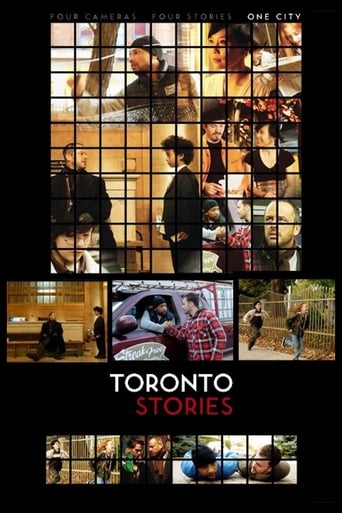
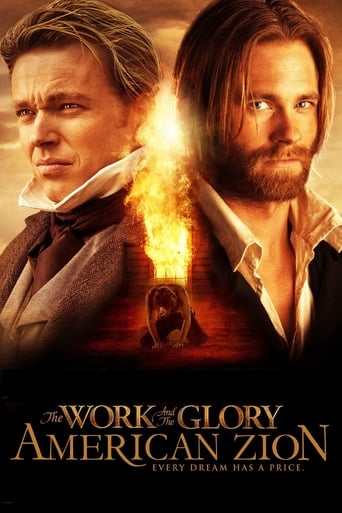
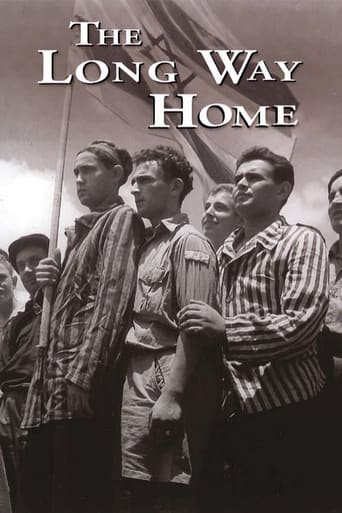





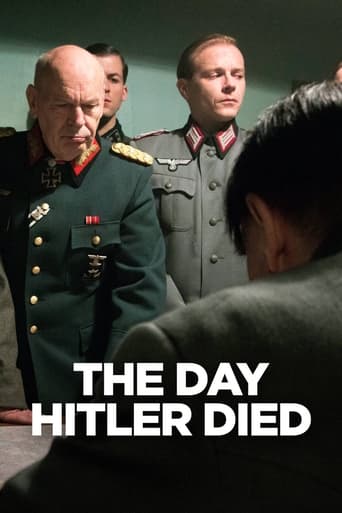



















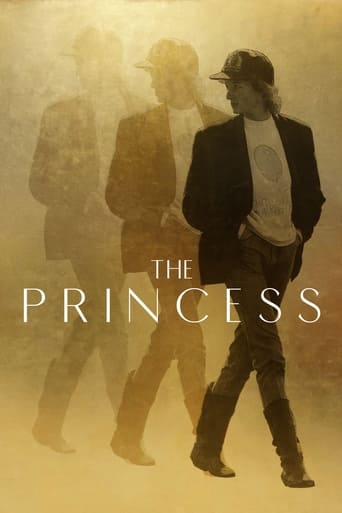
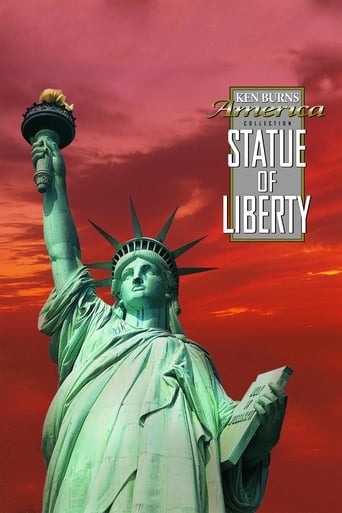

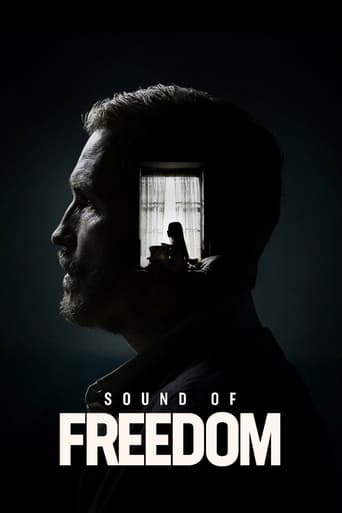
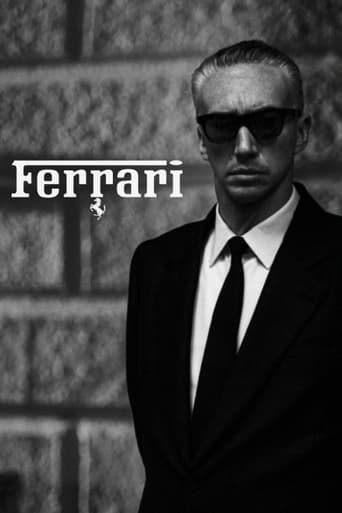
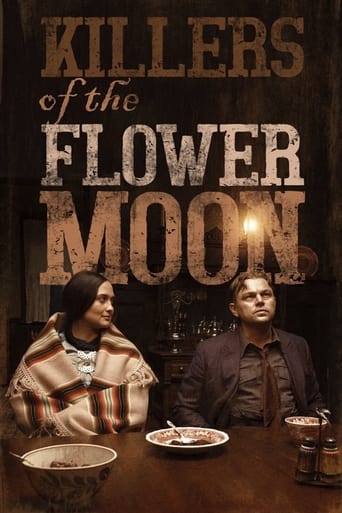
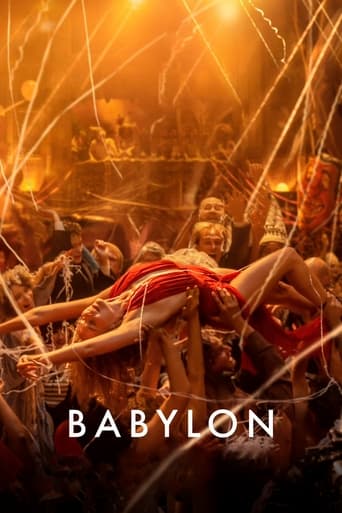
Viceroy's House
In 1947, Lord Mountbatten assumes the post of last Viceroy, charged with handing India back to its people, living upstairs at the house which was the home of British rulers, whilst 500 Hindu, Muslim and Sikh servants lived downstairs.